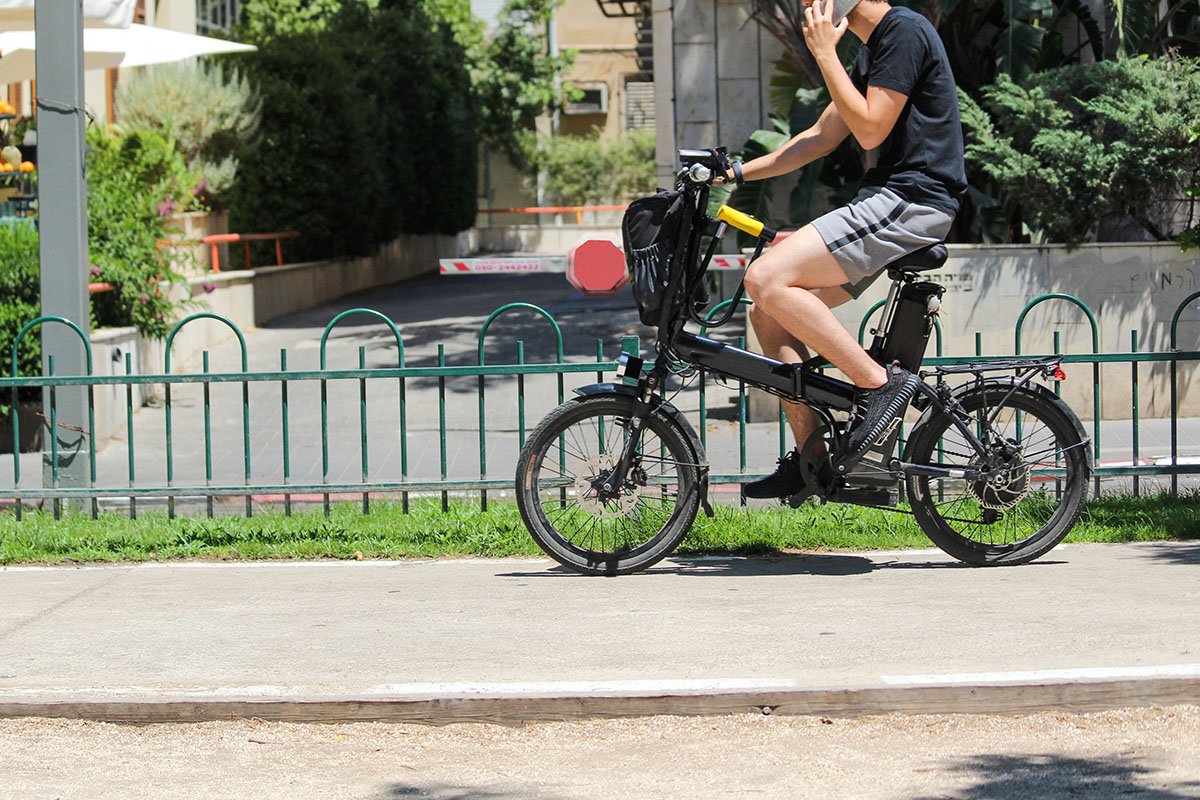There is a lot of misinformation when it comes to electric bikes. What are the laws when it comes to riding an electric bike? do you need insurance? and how many cyclists are cheating in the Tour de France with them? We answer all of these questions, and a few more you didn’t know you needed an answer for.

What is an electric bike?
An e-bike is any bicycle that has been fitted with a battery and motor to assist while pedalling. The assistance is restricted to 15.5 mph in the UK, and they are not subject to the Road Traffic Act.
How much do electric bikes cost?
Just like regular bicycles, e-bikes cover a huge range of price points to appeal to a vast range of cyclists. The cheapest model currently available through Halfords – who tend to target a lower budget market – is the Apollo folding ebike, available for £600. At the other end of the scale, Pinarello launched their Nytro Eroad ebike in 2017 which currently retails for Around £6,000. Generally speaking, more expensive electric bikes are likely to have larger capacity batteries which allow you to cycle further without charging, or they are targeted at specialist sections of the market such as downhill mountain bikers.
The availability of cheap electric bikes is being driven primarily by low-cost imports from China, which have in turn lead to accusations of ‘dumping’ – the mass import of electric bikes at knock-down prices which local companies can’t compete with. Fearing damage to European based manufacturers and in an attempt to protect the market, the EU has begun to impose tariffs on these ‘dumped’ Chinese e-bikes from 21.8% to as much as 83.6%.
How do electric bikes work?
The majority of e-bikes have their motor mounted either in the hub of the rear wheel or integrated into the bottom bracket delivering power directly into the chainring. While some have motors mounted into the hub on the front wheel, these are fairly uncommon. A sensor detects how fast you are pedalling, and uses the motor to ‘top-up’ the power you are putting through the pedals to help with acceleration and make it easier to get up hills. Under UK law, electric bikes are not allowed to have a separate throttle. Once you get above 15.5 mph the electric bike will stop assisting you, and if you are cycling up a hill the motor will provide a maximum of 250 watts.

How fast can an electric bike go?
By law, the electric assist on an e-bike has to cut out above 15.5 mph. For a strong rider, this means the assist will cut out before they reach their top speed on the flat. The real benefit comes while accelerating from stationary where an electric bike can significantly reduce the effort in stop/start traffic, and while cycling up hills when your top speed would normally be below the 15.5 mph limit.
is an electric bike cheating?
No. While an electric bike will do some of the work for you (especially up hills) you still need to pedal while riding it, and this will undoubtedly help to keep you fit and healthy. A study which made the news in 2018 suggested that riding an electric bike for fitness could be just as good as riding a regular bike.
Can you remove an electric bike speed limiter?
While electric assistance on e-bikes is restricted to 15.5mph, most are capable of providing assistance well above these limits. As you might expect, a cottage industry has emerged offering to remove these limiters, known as e-bike tuning, and give a boost to your e-bikes speed. While it may seem like harmless fun, this is horribly illegal.
If you remove the limiter on an electric bike, you are effectively left with an unregistered, untaxed and uninsured motorbike. If you were to be involved in an accident while riding the consequences would be incredibly severe, potentially up to a custodial sentence. It goes without saying that if you have electric bike insurance with Yellow Jersey and make modifications to the speed limiter, your insurance would be completely voided.
What is an electric bike conversion kit?
Don’t want a new bike, or would just rather save a bit of money? Not a problem. As quickly as new electric bikes are coming to market, so are new e-bike conversion kits. A quick look on Kickstarter will give you an idea of the breadth of new ideas in development. They are designed to take your existing road, gravel or mountain bike and retrofit a motor and battery so you can enjoy all the benefits of electric without buying a completely new bicycle.

Are people using electric bikes to cheat in the Tour de France?
Pro cycling has an unfortunate history of cheating, so it’s no surprise people have been speculating for years about “motor-doping”, or using hidden motors in bikes to gain an advantage. Companies like Vivax Assist already provide electric bike conversion kits which are easily hidden within bike frames, and this sort of technology has got the UCI worried enough that they have been scanning competitor’s bikes since the 2010 Tour de France.
Despite accusations against a number of high profile riders, there has only been one confirmed case of motor doping in professional cycling. Belgian professional cyclocross rider Femke Van Driessche was handed a six-year ban after one of her bikes was found to have a hidden motor at the Cyclocross World Championships in 2015.
Do you need insurance to ride an ebike?
If you are riding in the UK there is no requirement to have a licence or insurance to ride an electric bike, so long as it is not subject to the requirements of the Road Traffic Act. This means the electric assist is limited to 15.5 mph, the motor provides no more than 250 watts of peak power, and the assist is only active while peddling. Electric bikes with throttles on the handlebars are not allowed. The law also requires riders to be 14 years old or over.
Is the EU going to make us get electric bike insurance?
There was news over the summer of a new EU directive that could make it a legal requirement to have third-party liability while riding an electric bike. Currently, electric bikes (along with mobility scooters and a few other things) are exempt from compulsory third party insurance under UK law despite technically being motor vehicles, but there is a fairly good chance the law will change.
It all goes back to the “Vnuk Case”, an insurance claim from Slovenia way back in 2007. A man named Damijan Vnuk was working up a ladder when it was hit by a tractor, and Mr Vnuk was injured when he fell. Since the tractor was operating on private land the driver didn’t have third-party liability insurance, and this lead to a 10 year battle over who was liable for the costs. Long story short, the way we define motor vehicles and the situations we need to insure them in are likely to change, and there is a good chance this will have an effect on electric bicycle insurance.
Fortunately, third party insurance for cycling is pretty cheap and included as standard in all three of our electric bike insurance tiers.
How long does an e-bike battery last?
An electric bikes range depends on the capacity of the battery, and how you are using it. Most manufacturers will give an indication on how long their batteries last, but the true number can vary wildly depending on the weight of the rider, how hilly the terrain is, and how frequently the rider stops and starts again.

Will I need to get a replacement e-bike battery?
Unfortunately, even the most expensive electric bike batteries don’t last forever, and will eventually need to be replaced. They use essentially the same type of batteries as in a mobile phone, and anyone who’s had a smartphone for a couple of years or more will know how quickly their battery life will begin to deteriorate. Most e-bike brands offer replacement batteries, but their cost should definitely be a factor when deciding which bike to buy. On cheaper electric bikes the battery will represent a bigger portion of its value, and when it starts to go bad, you might be better off buying a whole new bike.
Could I use an electric bike for deliveries?
It’s the green revolution, and many of us are looking for new ways to reduce our carbon footprint as well as reducing pollution and congestion in our cities. One growing trend is replacing the vans used for ‘last-mile delivery’ with cargo bikes, where the benefit of electric cargo bikes is fairly obvious.
Just like a regular e-bike, there are no restrictions on using an electric cargo bike for deliveries, so long as they are not subject to the Road Traffic Act. If you are making deliveries with an electric bike however, it is worth considering taking on some insurance for your liability. Our business wing can provide e-cargo bike insurance for individuals or large businesses.



